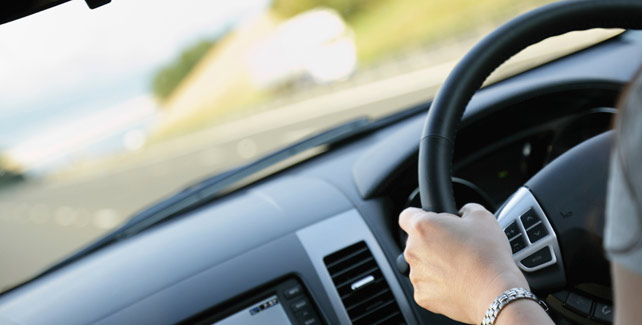There is so much information about diabetes out there, but not all of it is true.
It can be difficult to know what’s right and what’s wrong. Misconceptions and misinformation about diabetes is driving stigma and blame towards people living with diabetes.
Understanding the facts and what’s true can help you manage your diabetes and protect your emotional wellbeing.
Common questions about diabetes
Below we aim to dispel some of the most common misconceptions about diabetes – let's have a look at some of them...
Question: Is type 2 diabetes a mild form of diabetes?
There is no such thing as mild diabetes, all types of diabetes are serious. If people don't get the support they need to manage the condition, it can lead to serious diabetes complications.
Question: Can people living with diabetes have sugar?
Having diabetes does not mean you have to cut out sugar completely. You should still be able to enjoy a wide variety of foods, including some with sugar.
Sugar is found naturally in fruit, vegetables (fructose), and dairy foods (lactose). Sugar is also added by food manufacturers in fizzy drinks, cakes, and biscuits, or by ourselves at home. These types of added sugars are called ‘free sugars’ and they are also found in pure fruit juice and smoothies.
Eating too much ‘free sugar’ can harm our health. Everyone should try to reduce the amount of free sugars from these foods and drinks.
Question: Do people living with diabetes need to eat 'diabetic' foods?
To say food is a "diabetic food" is now against the law. This is because there isn’t any evidence that these foods offer you a special benefit over eating healthily.
These foods can also often contain just as much fat and calories as similar products, and can still affect your blood glucose level. These foods can also sometimes have a laxative effect.
Question: Do people living with diabetes eventually go blind?
Diabetes increases the risk of eye complications, but not everyone with diabetes will go blind.
Although diabetes is one of the main causes of preventable sight loss in the UK, research has proved that you can reduce your risk of diabetes complications, such as damage to your eyes, if you get support to:
- manage your blood pressure, blood sugar, and blood fat levels
- keep active
- maintain a healthy body weight
- stop smoking if you smoke.
- go to your diabetes health checks.

Question: Is it safe to drive if you have diabetes?
For most people with diabetes, driving isn’t a problem, and they can hold a driving licence and carry on driving.
But it’s important that you know the rules about driving when you have diabetes and when you need to notify the DVLA if you live in England, Wales, or Scotland, or DVA if you live in Northern Ireland.
The rules are different depending on what vehicle you want to drive. They can be complicated, but our diabetes and driving page includes a helpful table that explains them clearly.
We work with the Driver and Vehicle Licensing Agency (DVLA) in England, Scotland and Wales, and the Driver and Vehicle Agency (DVA) in Northern Ireland to ensure that the process for applying and reapplying for driving licences is fair, safe and reflects advances in diabetes treatment and monitoring.
Question: Can people living with diabetes play sport?
People living with diabetes are encouraged to exercise as part of a healthy lifestyle.
Keeping active can help reduce the risk of long-term diabetes complications. Steve Redgrave, Olympic gold medal-winning rower, has achieved great sporting achievements while living with diabetes.
However, there may be some considerations to take into account before taking up a new type of exercise. Talk to your healthcare team for more information they can help you decide what’s safe and consider any complications you have.
Question: Are people living with diabetes more likely to get colds and other illnesses?
While there is some research that suggests people with diabetes might be at higher risk of developing illnesses, there’s nothing to prove this conclusively.
But there are certain illnesses and infections that are more common in people living with diabetes, and diabetes may also alter the course of an illness – for example, a person living with diabetes may become more unwell or be unwell for longer if they have the flu than a person without diabetes who has the flu.
Question: Does having diabetes mean you can't do certain jobs?
Having diabetes should not stop you from getting and keeping a job.
With the exception of the UK Armed Forces, who are exempt from the Equality Act and have a blanket ban on employing people with diabetes, you should feel confident to apply for a job if you meet the needs of the job description.
For most jobs, there’s no legal obligation to tell an employer you have diabetes, and the Equality Act makes it unlawful for them to ask about your health before offering you work.
But talking about your diabetes from the start can show that you’re positive about your condition. It can even be an opportunity to give examples of how resourceful and well organised you are.
Question: Can people with diabetes wear flight socks?
Many flight socks carry the warning that they are not suitable for people with diabetes. If you have any circulatory problems or complications with your feet, such as ulcers, then speak to your GP before using them.
If, however, your feet and legs are generally healthy and you are normally active, using flight socks is unlikely to do you any harm.

Question: Can people with diabetes eat grapes, mangoes, or bananas?
People sometimes think that if they have diabetes, they can’t eat some types of fruit because they’re too sweet. All fruits are high in fibre, low in fat, and full of vitamins and minerals. Fruit helps to protect against heart disease, cancer, and certain stomach problems.
Most fruits also have a low to medium-glycaemic index (GI), so they don’t have an immediate effect on your blood glucose levels in the way other refined carbohydrate foods, like white bread, do.
If you spread your intake of whole fruit throughout the day, rather than eating a large portion in one go, there’s no reason why you can’t eat any fruit you like.
Question: Can people with diabetes cut their own toenails?
Yes, people with diabetes can cut their own toenails, but it’s important to cut them carefully. Cutting your skin by mistake can lead to other problems, like ulcers or infections. And you might not even notice you’ve done it.
So, take care when you cut your toenails, and follow these tips:
- cut them often, but not too short or down the side.
- trim them with nail clippers and then use an emery board to file any corners.
- clean them gently with a nail brush. Don’t use the sharp points of scissors to clean, as this isn’t safe.
Washing your feet and toenails every day will keep them clean and free from infection. Do this with a mix of soap and warm water. Always check the temperature with your wrist or elbow before you put your feet in. Avoid soaking your feet, as this can make the skin more prone to damage.
If you’ve lost some feeling in your feet or you’re worried about things like ingrown toenails, see a foot specialist. They’re used to helping with these things.
Other frequently asked questions
Can I still travel if I have diabetes?
Yes - people with diabetes travel all over the world; you do not need to choose special holidays or curb your wanderlust. The key is making the right preparations to minimise any potential problems and have an enjoyable, safe trip.
Will I need extra support and where can I get it?
Managing your diabetes can at times seem incredibly demanding, and some people find that support and encouragement can be really beneficial in helping them cope.
Support should ideally come from someone you have regular contact with, such as your partner, a friend, or a member of your healthcare team.
Ask your healthcare team about any support groups in your area. Our helpline and local Diabetes UK groups can also provide support and information.
What education on diabetes is available?
NHS guidelines recommend that people with diabetes be offered patient education programmes, known as structured education.
All people with diabetes should receive the education and support they need to equip them with the necessary information and skills to manage their diabetes.
Discuss with your healthcare team about suitable courses available in your area.
